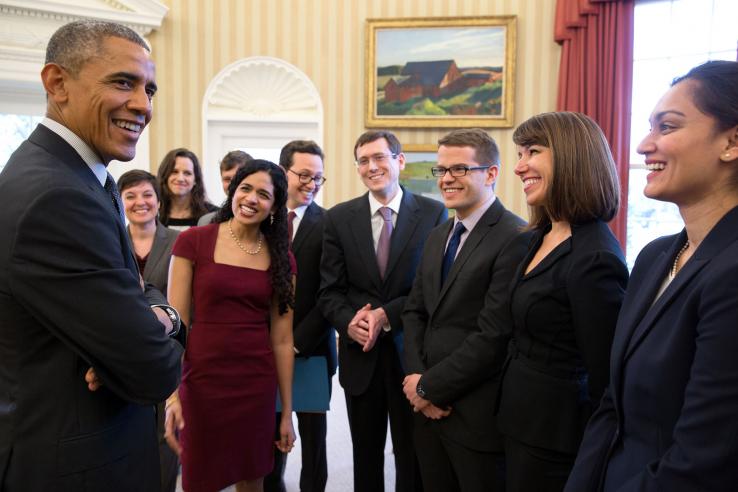White House releases report on applying behavioral science to government policy

The White House’s Social and Behavioral Sciences Team (SBST) released its second report last month, and it’s worth a close read. The SBST was launched just over two years ago, and has been working to make government more effective. This might seem like quiet, behind the scenes work, but it can make a big difference when scaled up across national programs.
I’ve had the honor of working with the SBST over the past two years and have been impressed by key elements of their approach.
They test relatively small tweaks to programs, but these can add up to real changes that improve lives. Here are a few highlights:
- A 53 percent increase in workplace savings plan enrollment rates by military service members—more than 4,800 new enrollments—and over $1 million dollars in additional savings in just one month.
- A doubling in the rate at which student loan borrowers in default contacted default-resolution representatives.
SBST has been exemplary in how they have made research integrity a major priority.
- They are committed to building A/B testing and random assignment into their studies. When appropriate, this can be a very valuable tool for understanding which approaches work and why.
- They have highlighted the studies that didn’t work, too, for example in their first report. That’s a refreshingly transparent approach for both academia and government.
They have mastered the art of tapping into external resources and collaborating across agencies.
SBST has partnered with researchers from nationally recognized universities who often provide their time pro bono while getting the chance to conduct policy-relevant studies in partnership with the government. Given the close alignment of J-PAL North America’s specialization on randomized evaluations, our network of academics has been excited to partner with them on multiple studies, and our staff have collaborated from the start on knowledge sharing and best practices in designing and running studies for maximum effect. We’d especially like to congratulate Kelly Bidwell, previously a senior policy manager with J-PAL North America, for her role as one of the initial SBST members during its launch, and her leadership in building the work of SBST.
Last year, President Obama institutionalized their work by signing an executive order to make SBST permanent and directing federal agencies to include behavioral science insights in the design of their programs. I’m hopeful that their work will continue to have an impact for years to come and set the norm for how government innovates.
